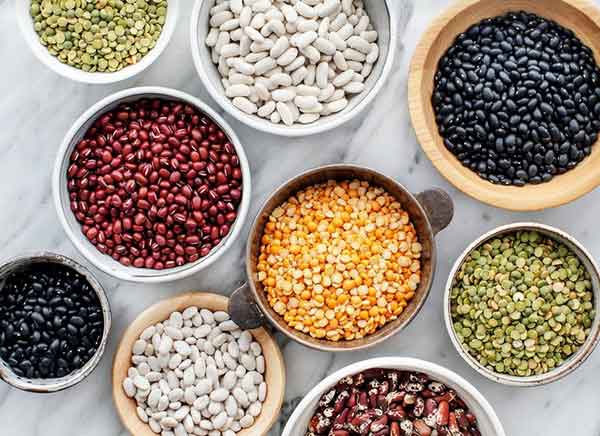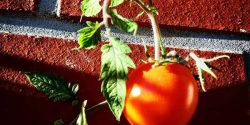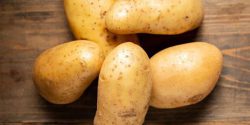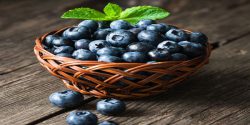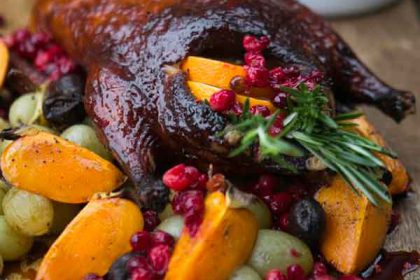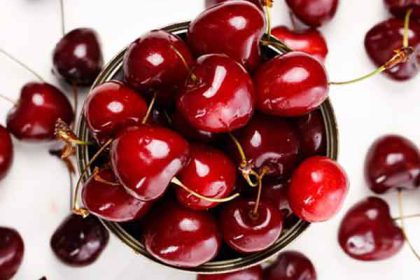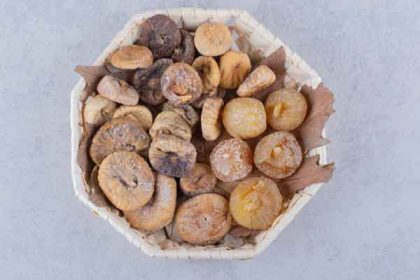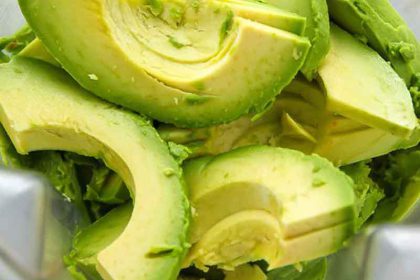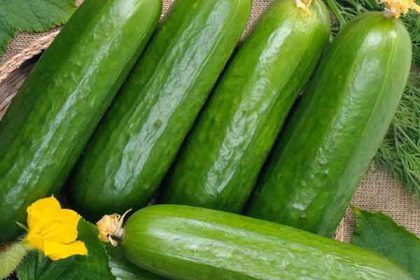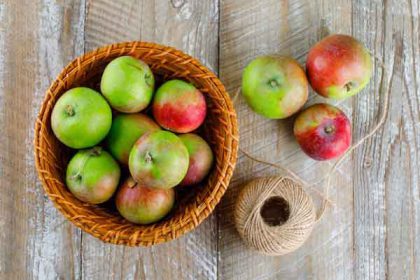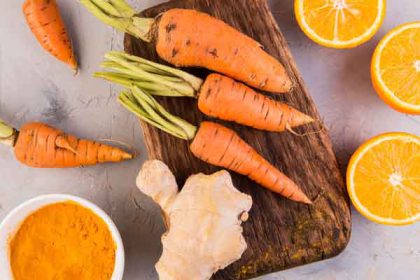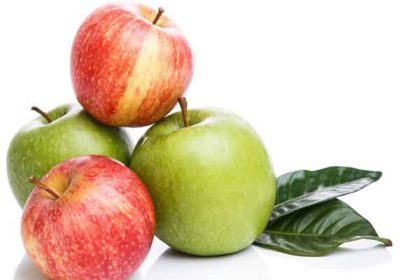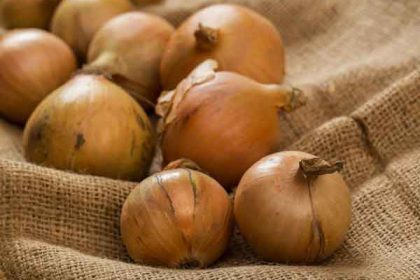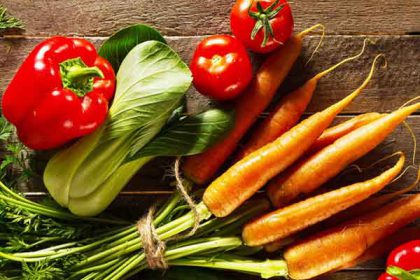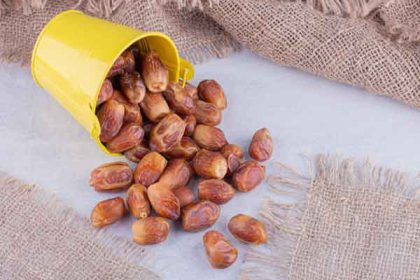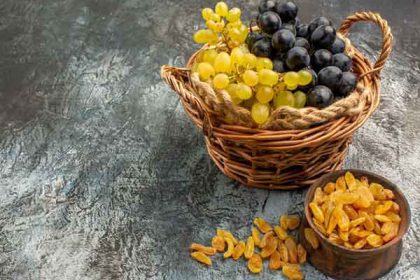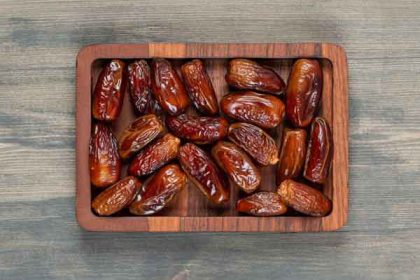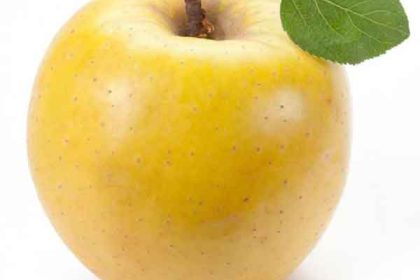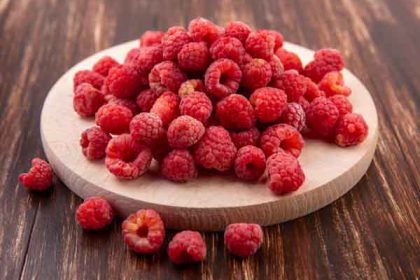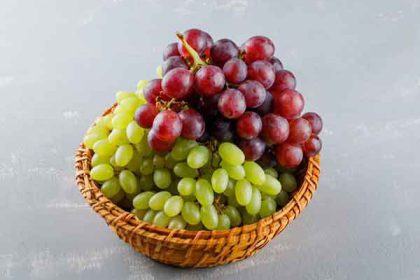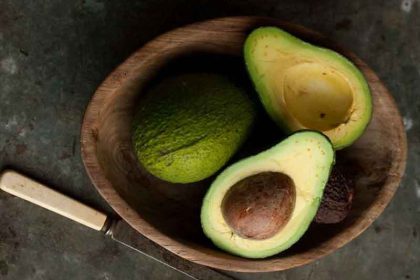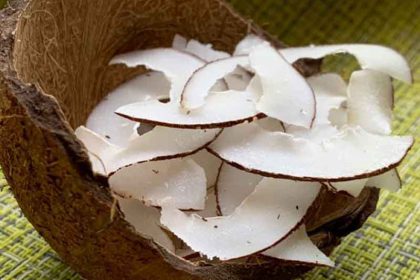Benefits of beans for weight loss and skin and bodybuilding
Beans benefits
Benefits of beans for weight loss and skin and bodybuilding on Nicholi site. We hope this article will be of interest to you.
This text explains the benefits of consuming beans, which include being high in fiber, a rich source of plant-based protein, low in fat, and rich in vitamins and minerals. The calorie content of various types of beans is provided, and it is noted that the calorie count will increase if other ingredients are added. Additionally, the benefits of consuming beans and rice together are outlined, such as being high in protein, a good source of fiber, nutrient-rich, affordable, and versatile. It is also noted that whether or not it is healthy to eat beans and rice every day depends on various factors, such as individual dietary needs and cooking methods used. The text discusses various aspects of rice, beans, and eggs, including their nutritional benefits, side effects, and effects on weight. Rice is a good source of carbohydrates, beans are a great source of protein and fiber, and eggs are rich in vitamins and minerals. Beans can cause digestive side effects due to their high fiber content, but gradually increasing intake and soaking and rinsing before cooking can reduce the likelihood of these symptoms. Eating beans alone is unlikely to cause weight gain, but excessive calorie consumption can contribute to weight gain. Eating beans for breakfast can offer health benefits, including being high in protein, and fiber, and having a low glycemic index.
Beans benefits
Beans are an excellent source of plant-based protein, fiber, and other essential nutrients. Some of the potential benefits of consuming beans include:
High in fiber: Beans are high in soluble and insoluble fiber, which can help regulate digestion, reduce cholesterol levels, and promote feelings of fullness.
Rich in plant-based protein: Beans are a great source of plant-based protein, making them an excellent alternative to meat for vegetarians and vegans.
Low in fat: Most types of beans are naturally low in fat, making them a healthy addition to any diet.
Rich in vitamins and minerals: Beans are a good source of essential vitamins and minerals such as iron, magnesium, folate, and potassium.
May help reduce the risk of chronic diseases: Some studies suggest that consuming beans regularly may help reduce the risk of chronic diseases such as heart disease, diabetes, and certain types of cancer.
Versatile and easy to prepare: Beans are easy to cook, affordable, and can be used in a variety of dishes, including soups, salads, dips, and stews.
Beans Calories
The calorie content of beans can vary depending on the type and how they are prepared. Here are the approximate calorie counts for some common types of beans based on a serving size of 1/2 cup (cooked):
Black beans: 114 calories
Chickpeas (garbanzo beans): 134 calories
Kidney beans: 100 calories
Lentils: 115 calories
Lima beans: 105 calories
Navy beans: 120 calories
Pinto beans: 120 calories
Keep in mind that these calorie counts are for plain, cooked beans without any added ingredients like oil, butter, or cheese. If you add other ingredients to your beans, the calorie count will increase accordingly.
The calorie content of beans per 1 cup serving can vary depending on the type of beans and how they are prepared. Here are the approximate calorie counts for some common types of beans based on a 1-cup (cooked) serving size:
Black beans: 227 calories
Chickpeas (garbanzo beans): 269 calories
Kidney beans: 225 calories
Lentils: 230 calories
Lima beans: 216 calories
Navy beans: 254 calories
Pinto beans: 245 calories
Again, keep in mind that these calorie counts are for plain, cooked beans without any added ingredients like oil, butter, or cheese. If you add other ingredients to your beans, the calorie count will increase accordingly.
The calorie content of cooked beans can vary depending on the type of beans and how they are prepared. Here are the approximate calorie counts for some common types of beans based on a cooked serving size of 1 cup:
Black beans: 227 calories
Chickpeas (garbanzo beans): 269 calories
Kidney beans: 225 calories
Lentils: 230 calories
Lima beans: 216 calories
Navy beans: 254 calories
Pinto beans: 245 calories
Again, these calorie counts are for plain, cooked beans without any added ingredients like oil, butter, or cheese. If you add other ingredients to your beans, the calorie count will increase accordingly.
Benefits of eating beans and rice together
Eating beans and rice together can have several benefits for your health, including:
High in protein: Beans and rice are both excellent sources of plant-based protein. When eaten together, they provide all the essential amino acids that your body needs to build and repair muscles.
Good source of fiber: Both beans and rice are high in fiber, which helps to keep you feeling full and can aid in digestion. Fiber also helps to lower cholesterol and blood sugar levels.
Nutrient-rich: Beans and rice are both rich in vitamins and minerals, including iron, magnesium, and potassium. These nutrients are essential for maintaining a healthy body and can help to prevent chronic diseases.
Affordable: Beans and rice are both inexpensive and readily available, making them a great choice for those on a budget.
Versatile: Beans and rice can be prepared in many different ways, making them a versatile and flavorful addition to your diet.
Beans and rice are both healthy, nutritious foods that are a staple in many cultures around the world. However, whether or not it is healthy to eat beans and rice every day depends on a few factors.
Firstly, it’s important to ensure that you are consuming a variety of other foods to meet all of your nutritional needs. While beans and rice are good sources of protein, fiber, and carbohydrates, they may not provide all the essential vitamins and minerals that your body needs.
Secondly, it’s important to consider the preparation and cooking methods used for beans and rice. Adding excess amounts of salt, oil, or other unhealthy ingredients can turn a healthy dish into an unhealthy one.
Lastly, individual dietary needs and preferences can play a role. For example, some people may have difficulty digesting beans and may need to limit their intake, while others may have cultural or personal reasons for not wanting to eat beans and rice every day.
In general, consuming beans and rice as part of a balanced diet can be a healthy and affordable option. However, it’s important to vary your diet and ensure that you are meeting all of your nutritional needs.
Eating beans and rice for 30 days straight may not provide a balanced and varied diet. While beans and rice do provide essential nutrients such as carbohydrates, protein, fiber, and some vitamins and minerals, they may not provide all the nutrients needed for optimal health. It is important to include a variety of foods in your diet to ensure that you are getting all the nutrients your body needs.
However, if you need to eat beans and rice for 30 days due to limited resources or personal choice, here are some tips to make the most of it:
Choose different types of beans and rice: There are many different types of beans and rice available, each with its own unique flavor and nutritional profile. Switching up the type of beans and rice you eat can help you avoid getting bored and provide a variety of nutrients. Add vegetables: Vegetables are a great way to add flavor, nutrition, and variety to your diet. Consider adding vegetables like bell peppers, onions, tomatoes, and carrots to your beans and rice dishes. Use different cooking methods: There are many different ways to cook beans and rice. Try cooking them in a slow cooker, pressure cooker, or on the stovetop with different seasonings and spices. Consider adding protein and healthy fats: Beans and rice are good sources of protein, but it may be helpful to add other sources of protein such as chicken, fish, eggs, or tofu to your diet. Adding healthy fats like avocado or olive oil can also help improve the nutritional profile of your meals. Plan ahead: Planning your meals ahead of time can help you ensure that you are getting all the nutrients you need. Consider using a meal planning app or website to help you plan your meals for the week.
There is a common myth that rice and beans must be eaten together to get a complete protein. This myth is based on the idea that rice and beans are incomplete proteins on their own, but when combined, they create a complete protein. While it is true that rice and beans are incomplete proteins, it is not necessary to eat them together in the same meal to get complete protein.
The body needs 20 different amino acids to make proteins, and there are nine essential amino acids that the body cannot produce on its own. A complete protein contains all nine essential amino acids in sufficient quantities. While rice is low in lysine, an essential amino acid, it is rich in methionine. Beans, on the other hand, are low in methionine but are rich in lysine. Therefore, when rice and beans are eaten separately, they can still provide all the essential amino acids needed to make a complete protein.
It is important to note that even if you don’t eat rice and beans together, you can still get all the essential amino acids by eating a variety of plant-based protein sources throughout the day, such as quinoa, tofu, lentils, and chickpeas. Eating a varied diet that includes a variety of plant-based protein sources can help ensure that you are getting all the essential amino acids and other nutrients needed for optimal health.
Beans and rice can be a healthy part of a weight loss diet when consumed in moderation and as part of a well-balanced diet. Both beans and rice are rich in fiber, protein, and complex carbohydrates, which can help you feel full and satisfied for longer periods, reducing the likelihood of overeating and snacking between meals. They are also relatively low in fat and calories, making them a good choice for people who are trying to lose weight.
However, it is important to pay attention to portion sizes when including beans and rice in your diet. While they are nutritious, they are still a source of calories, and consuming too much of them can lead to weight gain. It’s also important to consider how you prepare your beans and rice; for example, adding high-fat ingredients like cheese or sour cream can increase the calorie content significantly.
Additionally, a healthy weight loss diet should include a variety of nutrient-dense foods, including fruits, vegetables, whole grains, lean proteins, and healthy fats. Eating a balanced diet that includes a variety of foods can help ensure that you are getting all the nutrients your body needs while still achieving your weight loss goals.
Beans and rice are both good sources of plant-based protein.
Beans are particularly high in protein, with most types of beans containing around 7-10 grams of protein per 100 grams. For example, black beans contain about 8 grams of protein per 100 grams, while chickpeas contain about 9 grams of protein per 100 grams.
Rice, on the other hand, contains about 2-3 grams of protein per 100 grams. While it’s not as high in protein as beans, it still contributes to your overall protein intake and can be a good source of energy and complex carbohydrates.
When beans and rice are eaten together, they can provide a complete protein source. While beans are rich in lysine, an amino acid that is lacking in rice, rice is high in methionine, an amino acid that is lacking in beans. Together, they form a complete protein that provides all nine essential amino acids needed for optimal health.
It’s important to note that the protein content in beans and rice can vary depending on the type of bean and rice, as well as how they are prepared. Additionally, it’s important to eat a variety of protein sources as part of a well-balanced diet to ensure that you are getting all the essential amino acids and other nutrients needed for optimal health.
Rice, beans, and eggs are healthy
Rice, beans, and eggs can be a healthy meal option when consumed as part of a well-balanced diet.
Rice is a good source of carbohydrates and provides energy to the body. Beans are a great source of plant-based protein, fiber, and complex carbohydrates. Eggs are a rich source of protein, vitamins, and minerals. When combined, rice, beans, and eggs can provide a well-rounded meal with a good balance of macronutrients and micronutrients. However, it’s important to pay attention to portion sizes and preparation methods to ensure that the meal remains healthy. For example, if you’re trying to reduce your calorie intake, you may want to opt for smaller portions of rice and beans and increase the proportion of vegetables in your meal. Additionally, how you prepare your eggs can impact the healthfulness of the meal. For example, boiling or poaching eggs is a healthier option compared to frying them in oil or butter. Overall, incorporating rice, beans, and eggs into your diet can provide a nutritious and satisfying meal, but it’s important to consume them as part of a varied and balanced diet that includes a variety of nutrient-dense foods.
Side effects of eating beans
While beans are a nutritious food and an excellent source of plant-based protein, fiber, and complex carbohydrates, they can cause some side effects in some people due to their high fiber and oligosaccharide content. Some people may experience gas, bloating, or abdominal discomfort after consuming beans. This is because beans contain a type of carbohydrate called oligosaccharides, which the body cannot digest fully. These undigested oligosaccharides are then broken down by bacteria in the large intestine, which can produce gas and cause bloating and discomfort.
However, there are ways to reduce the risk of experiencing these side effects. Soaking and rinsing beans before cooking them can help remove some of the oligosaccharides and make them easier to digest. Additionally, gradually increasing your intake of beans over time and consuming them in small portions can help your body adjust to the increased fiber intake and reduce the likelihood of digestive symptoms. It’s also important to note that some people may be allergic to beans, which can cause more severe symptoms like hives, swelling, or difficulty breathing. If you experience these symptoms after eating beans, it’s important to seek medical attention immediately. Overall, while beans can cause some digestive side effects, they are generally safe and nutritious to eat for most people when consumed in moderation and as part of a varied and balanced diet.
Eating too many beans, especially if you are not used to consuming them regularly, can cause diarrhea and other digestive symptoms. This is because beans are high in fiber, which can have a laxative effect if consumed in excess. Additionally, beans contain oligosaccharides, a type of carbohydrate that is not digested by the body. When these oligosaccharides reach the large intestine, they are fermented by bacteria, which can produce gas, bloating, and diarrhea. To reduce the risk of experiencing these symptoms, it’s important to gradually increase your intake of beans over time and consume them in moderation. Soaking and rinsing beans before cooking them can also help remove some of the oligosaccharides and make them easier to digest.
If you experience diarrhea or other digestive symptoms after consuming beans, it’s important to drink plenty of water to stay hydrated and avoid consuming large quantities of beans until your symptoms improve. Additionally, if your symptoms persist or are severe, it’s important to seek medical attention. Overall, while beans are a nutritious food and an excellent source of plant-based protein, fiber, and complex carbohydrates, it’s important to consume them in moderation and gradually increase your intake over time to avoid digestive symptoms like diarrhea.
Eating beans everyday gain weight
Eating beans every day is unlikely to cause weight gain on its own. In fact, beans can be a great addition to a weight loss or weight management diet, as they are low in fat and calories, high in fiber and protein, and can help keep you feeling full and satisfied. However, if you consume too many calories overall, regardless of whether they come from beans or other foods, you may still gain weight. For example, if you consume more calories than you burn through physical activity and exercise, you may gain weight even if you eat a diet that includes beans. Additionally, some bean dishes like refried beans or baked beans can be high in calories and added sugars, which can contribute to weight gain if consumed in excess. It’s important to pay attention to portion sizes and preparation methods to ensure that your bean intake remains healthy and does not contribute to weight gain. Overall, incorporating beans into your diet can be a healthy and nutritious choice, but it’s important to consume them in moderation as part of a well-balanced diet that includes a variety of nutrient-dense foods.
Benefits of eating beans for breakfast
Eating beans for breakfast can offer several health benefits. Here are some of them:
High in protein: Beans are a great source of plant-based protein, making them an excellent option for vegetarians or vegans who may struggle to get enough protein in their diets. Eating protein-rich foods like beans in the morning can also help keep you feeling full and satisfied throughout the day.
Rich in fiber: Beans are also high in fiber, which can help regulate digestion, lower cholesterol levels, and promote feelings of fullness and satiety. Eating fiber-rich foods in the morning can help keep you feeling full and energized throughout the day.
Low glycemic index: Beans have a low glycemic index, which means they don’t cause a rapid spike in blood sugar levels. This can help keep blood sugar levels stable and reduce the risk of developing insulin resistance and type 2 diabetes.
Nutrient-dense: Beans are packed with essential nutrients like iron, potassium, folate, and magnesium, which are important for overall health and well-being. Eating beans for breakfast can help you start your day off on the right foot with a nutritious and balanced meal.
Versatile: Beans are incredibly versatile and can be incorporated into a wide variety of breakfast dishes, from breakfast burritos and breakfast bowls to baked beans and bean-based spreads like hummus.
Overall, incorporating beans into your breakfast routine can be a great way to boost your nutrient intake, promote feelings of fullness and satiety, and support overall health and well-being.
List of healthy beans
There are many types of beans, each with its own unique nutritional profile and health benefits. Here are some examples of healthy beans that you can include in your diet:
Black beans: These beans are high in protein, fiber, iron, and antioxidants. They may also help improve gut health and reduce the risk of certain types of cancer.
Chickpeas: Also known as garbanzo beans, chickpeas are high in protein, fiber, and several vitamins and minerals, including folate and iron. They may also help lower cholesterol levels and reduce the risk of heart disease.
Lentils: Lentils are a great source of plant-based protein, fiber, and several essential vitamins and minerals, including iron, folate, and magnesium. They may also help lower blood pressure and reduce the risk of certain types of cancer.
Kidney beans: Kidney beans are high in protein, fiber, and several essential vitamins and minerals, including iron and folate. They may also help lower cholesterol levels and reduce the risk of heart disease.
Navy beans: Navy beans are a great source of protein, fiber, iron, and several other essential nutrients. They may also help improve gut health and reduce the risk of certain types of cancer.
Pinto beans: Pinto beans are high in protein, fiber, and several essential vitamins and minerals, including iron and folate. They may also help improve gut health and reduce the risk of certain types of cancer.
Soybeans: Soybeans are a complete source of protein and are high in fiber, iron, and several essential vitamins and minerals. They may also help reduce the risk of heart disease and certain types of cancer.
Overall, incorporating a variety of beans into your diet can help you meet your nutrient needs and support overall health and well-being.
Healthiest beans for weight loss
All types of beans can be a healthy addition to a weight loss diet, as they are low in fat and calories, high in fiber and protein, and can help keep you feeling full and satisfied. However, some types of beans may be especially beneficial for weight loss due to their unique nutritional profile. Here are some of the healthiest beans for weight loss:
Black beans: Black beans are high in protein, fiber, and antioxidants, and may also help regulate blood sugar levels and improve gut health.
Chickpeas: Chickpeas are high in protein, fiber, and several essential vitamins and minerals, including iron and folate. They may also help lower cholesterol levels and reduce the risk of heart disease.
Lentils: Lentils are a great source of plant-based protein, fiber, and several essential vitamins and minerals, including iron and folate. They may also help lower blood pressure and reduce the risk of certain types of cancer.
Navy beans: Navy beans are a great source of protein, fiber, iron, and several other essential nutrients. They may also help improve gut health and reduce the risk of certain types of cancer.
Pinto beans: Pinto beans are high in protein, fiber, and several essential vitamins and minerals, including iron and folate. They may also help improve gut health and reduce the risk of certain types of cancer.
Overall, incorporating a variety of beans into your weight loss diet can help you feel full and satisfied while providing essential nutrients to support overall health and well-being. It’s important to pay attention to portion sizes and preparation methods to ensure that your bean intake remains healthy and does not contribute to weight gain.
Best beans for gut health
Beans are an excellent source of dietary fiber, which is important for maintaining good gut health. The following are some of the best beans for gut health:
Black beans: Black beans are high in soluble fiber, which helps promote healthy digestion and reduces the risk of constipation. They also contain resistant starch, a type of fiber that helps feed the good bacteria in your gut.
Chickpeas: Chickpeas are high in both soluble and insoluble fiber, which helps promote healthy bowel movements and improve gut health. They are also a good source of prebiotics, which help feed the good bacteria in your gut.
Lentils: Lentils are high in soluble fiber, which helps promote healthy digestion and reduces the risk of constipation. They also contain resistant starch, which helps feed the good bacteria in your gut.
Navy beans: Navy beans are high in both soluble and insoluble fiber, which helps promote healthy bowel movements and improve gut health. They also contain resistant starch, which helps feed the good bacteria in your gut.
Kidney beans: Kidney beans are high in soluble fiber, which helps promote healthy digestion and reduces the risk of constipation. They also contain resistant starch, which helps feed the good bacteria in your gut.
Types of beans
There are many different types of beans, including:
Black beans
Navy beans
Kidney beans
Lima beans
Cannellini beans
Pinto beans
Garbanzo beans (also known as chickpeas)
Adzuki beans
Mung beans
Lentils
Soybeans
Fava beans
Cranberry beans
Great Northern beans
Butter beans
Black-eyed peas
Red beans
These are just a few examples of the many different types of beans available, and they can be used in a wide variety of recipes. Beans are a great source of protein, fiber, and other important nutrients, and they can be a healthy addition to a balanced diet.
High protein beans
Beans are an excellent source of plant-based protein, and many types of beans are considered high in protein. Some of the highest protein beans include:
Soybeans – Soybeans are one of the highest protein beans, with about 36 grams of protein per 100 grams of cooked soybeans.
Lentils – Lentils are also high in protein, with about 9 grams of protein per 100 grams of cooked lentils.
Black beans – Black beans are a great source of protein, with about 8 grams of protein per 100 grams of cooked black beans.
Kidney beans – Kidney beans are another high-protein bean, with about 8 grams of protein per 100 grams of cooked kidney beans.
Chickpeas – Chickpeas, also known as garbanzo beans, are a good source of protein, with about 7 grams of protein per 100 grams of cooked chickpeas.
Lima beans – Lima beans are a high protein bean, with about 7 grams of protein per 100 grams of cooked lima beans.
Navy beans – Navy beans are also a good source of protein, with about 7 grams of protein per 100 grams of cooked navy beans.
These beans can be added to salads, soups, and stews, or used as a protein source in vegetarian and vegan dishes.
Here are some of the highest protein beans per 100g:
Soybeans: 36g of protein
Lentils: 9g of protein
Split peas: 8g of protein
Kidney beans: 8g of protein
Black beans: 8g of protein
Navy beans: 8g of protein
Lima beans: 7g of protein
Chickpeas: 7g of protein
Pinto beans: 6g of protein
Mung beans: 6g of protein
It’s important to note that the protein content may vary based on the preparation and cooking method of the beans. Nonetheless, these are all good sources of protein and can be a great addition to a healthy diet.
What do beans contain
Beans are a nutrient-dense food and contain a wide variety of vitamins, minerals, and other beneficial nutrients. Here are some of the nutrients commonly found in beans:
Protein – Beans are an excellent source of plant-based protein.
Fiber – Beans are a good source of dietary fiber, which can help regulate digestion, lower cholesterol levels, and keep you feeling full and satisfied.
Complex carbohydrates – Beans are a good source of complex carbohydrates, which provide long-lasting energy.
Vitamins – Beans are a good source of several vitamins, including thiamin, riboflavin, niacin, folate, and vitamin B6.
Minerals – Beans are a good source of several minerals, including iron, magnesium, phosphorus, potassium, and zinc.
Antioxidants – Many types of beans are rich in antioxidants, which can help protect against cellular damage and reduce the risk of chronic diseases.
Overall, beans are a healthy and nutrient-dense food that can provide a range of important vitamins, minerals, and other beneficial compounds.
Can eating too many beans cause gout?
There is some evidence to suggest that consuming too much of certain types of beans, such as kidney beans, may increase the risk of gout in some individuals. This is because kidney beans contain a naturally occurring compound called purines, which can be broken down into uric acid in the body. Excess uric acid can accumulate in the joints, leading to inflammation and pain, which are the hallmark symptoms of gout.
However, it’s important to note that the risk of developing gout from eating beans is generally low and depends on several factors, including an individual’s overall diet, lifestyle habits, and genetics. Additionally, other foods such as red meat, seafood, and alcohol have been shown to have a higher association with gout development.
In general, a balanced diet that includes a variety of nutrient-dense foods, including beans, can be beneficial for overall health. If you are concerned about your risk of gout, you should speak with your healthcare provider who can provide personalized advice based on your individual needs and health history.
Beans benefit for skin
Beans offer several potential benefits for skin health due to their nutrient content. Here are some of the ways that beans may benefit the skin:
Anti-aging properties – Many types of beans are rich in antioxidants, which can help protect against cellular damage caused by free radicals and reduce the signs of aging on the skin.
Collagen production – Beans are a good source of vitamin C, which is important for collagen production. Collagen is a protein that provides structure and elasticity to the skin, and adequate vitamin C intake can help maintain healthy levels of collagen in the skin.
Hydration – Beans are a good source of water-soluble vitamins and minerals, such as potassium and magnesium, which can help promote hydration and maintain healthy skin cells.
Anti-inflammatory properties – Some types of beans, such as black beans and chickpeas, contain anti-inflammatory compounds that may help reduce inflammation in the skin and prevent acne breakouts.
Blood sugar control – Beans are a good source of complex carbohydrates, which are digested slowly and can help prevent spikes in blood sugar levels. High blood sugar levels can contribute to skin problems such as acne and premature aging.
Overall, consuming beans as part of a balanced diet can provide several potential benefits for skin health. However, it’s important to note that individual dietary needs and skin health can vary, so it’s always best to consult with a healthcare provider for personalized advice.
Beans benefit for weight loss
Beans offer several potential benefits for weight loss due to their nutrient content. Here are some of the ways that beans may benefit weight loss:
High in fiber – Beans are a good source of dietary fiber, which can help keep you feeling full and satisfied after meals. This can help reduce the overall amount of food you eat and aid in weight loss.
Low in calories – Most types of beans are relatively low in calories compared to other sources of protein and complex carbohydrates. This means that you can consume a larger volume of beans for fewer calories, which can help with weight loss.
Low glycemic index – Beans have a low glycemic index, which means they are digested slowly and do not cause spikes in blood sugar levels. This can help regulate appetite and prevent overeating.
Nutrient-dense – Beans are a good source of several important vitamins and minerals, which can help support overall health and well-being. When incorporated into a balanced diet, beans can provide important nutrients without contributing excess calories.
Versatile – Beans are a versatile ingredient that can be used in a variety of dishes, making them easy to incorporate into a healthy diet. They can be used in soups, stews, salads, and even in desserts like black bean brownies.
Beans benefit for hair
Beans offer several potential benefits for hair health due to their nutrient content. Here are some of the ways that beans may benefit the hair:
Protein – Beans are an excellent source of plant-based protein, which is essential for building and maintaining healthy hair. Protein is a key component of hair structure, and adequate intake can help promote hair growth and prevent hair breakage.
Biotin – Many types of beans are rich in biotin, a B vitamin that is important for healthy hair growth. Biotin helps strengthen hair strands and improve overall hair health.
Iron – Some types of beans, such as black beans and lentils, are good sources of iron. Iron is essential for healthy hair growth and helps transport oxygen to the hair follicles.
Zinc – Beans are a good source of zinc, which is important for overall hair health. Zinc helps regulate oil production in the scalp and can help prevent dandruff and other scalp conditions that can lead to hair loss.
Omega-3 fatty acids – Some types of beans, such as navy beans and kidney beans, contain omega-3 fatty acids. These healthy fats can help improve scalp health and promote healthy hair growth.
Beans benefits in tamil
பீன்ஸ் பல நன்மைகள் உள்ளன:
பசுமை கருப்பு பீன்ஸ், ராஜ்மா, காராமணி போன்ற பீன்ஸ் பல்வேறு வகைகளில் உள்ள கருமையான போதுமானத்தை குறைக்கும் அளவில் உள்ளது. இதனால் உடலில் போதுமான பொருத்தத்தை குறைக்கலாம்.
உடல் மற்றும் சரியான நோய் பாதிப்புகளுக்கு பயன்படும் மிகவும் பலமான போதுமானங்களை உள்ளன. இதில் உள்ள கருமைகள் உடலின் பொருத்தங்களை கண்டறிதல், பசுமை கருப்பு பீன்ஸில் உள்ள கார்போஹைட்ரேடு உடல் சரியான நிலைக்கு உதவுகின்றது.
பீன்ஸ் சரியான உணவுகள் பெற உதவுகின்றன. இது மனித உடல் போக்கு உறுதியாக உள்ள போதுமானத்தை குறைக்கலாம்.
Beans benefit for babies
Beans can be a healthy addition to a baby’s diet, as they are a good source of protein, fiber, vitamins, and minerals. However, it is important to introduce beans slowly and in moderation, as they can be difficult for some babies to digest.
Here are some potential benefits of including beans in a baby’s diet:
Provides protein: Beans are a good source of plant-based protein, which is important for a baby’s growth and development.
Rich in fiber: The fiber in beans can help promote healthy digestion and prevent constipation in babies.
Vitamins and minerals: Beans contain important vitamins and minerals, including folate, iron, magnesium, and potassium, which are essential for a baby’s health and development.
Variety of textures: Beans come in a variety of textures, making them a great food for babies who are learning to eat solid foods and exploring different tastes and textures.
Can be easily prepared: Beans can be easily prepared and cooked at home, making them a convenient and healthy option for baby food.
However, it’s important to keep in mind that beans should be cooked thoroughly before feeding to babies, and any canned beans should be rinsed and drained to remove excess salt and preservatives. It’s also a good idea to consult with a pediatrician or a registered dietitian before introducing new foods to a baby’s diet.

